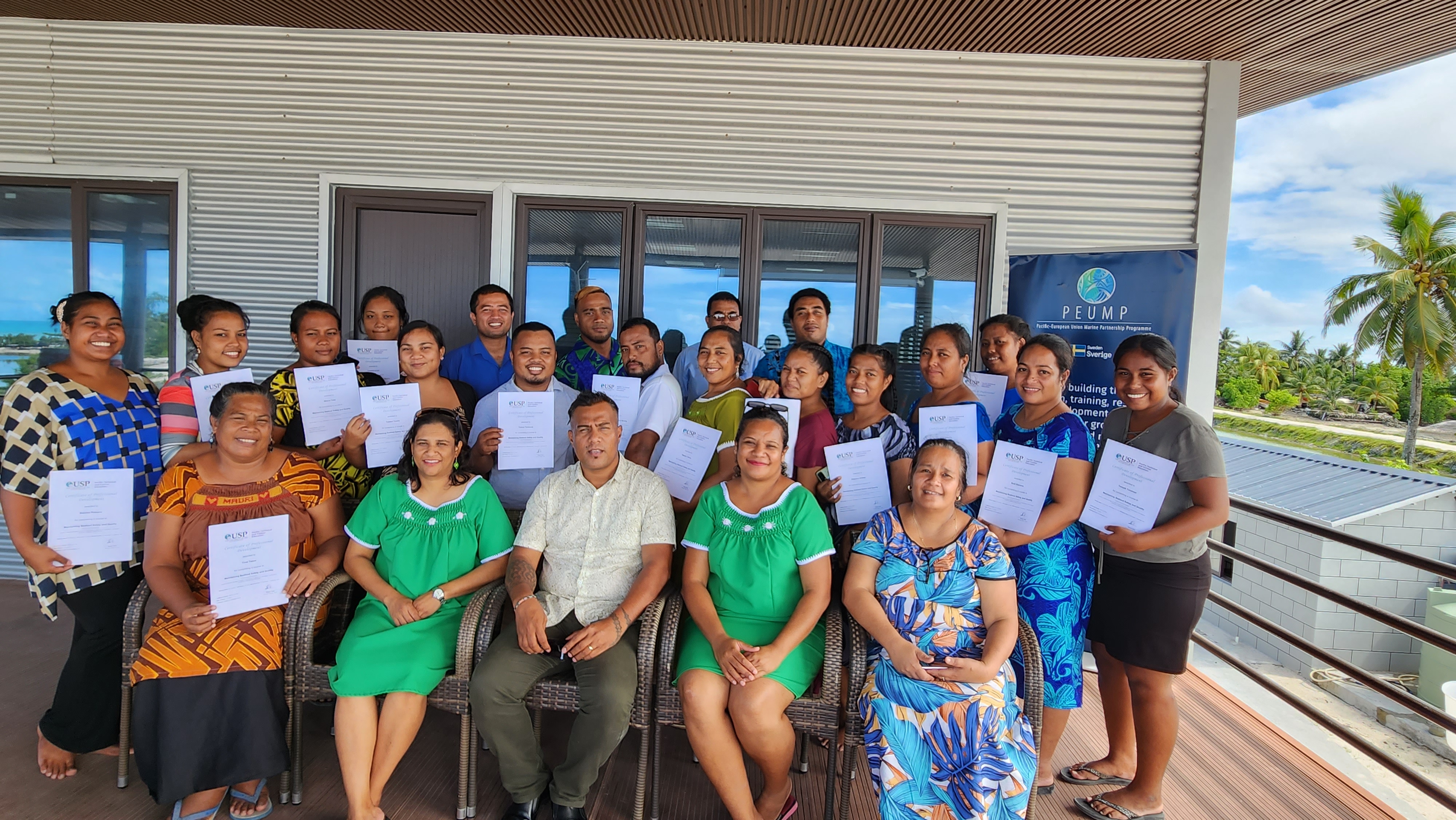Related News

In the month of November, 19 trainees became the first cohort to graduate with the micro qualification in Maintaining Seafood Safety and Quality in Tarawa Kiribati. This was made possible through the European Union and Government of Sweden funded USP Pacific European Union Marine Partnership project. This training aims to upskill learners in order to improve seafood safety and quality from ‘hook to plate’.
“This training initiative aims to enhance seafood practices for Kiribati nationals already engaged in the seafood industry, ensuring the optimal quality and safety of seafood for consumption,” stated Riibeta Abeta, Secretary of the Kiribati Ministry of Fisheries & Marine Resource Development in the closing of this training. “I am confident that our new graduates will evolve into professionals, trainers, and advocates for sustainable seafood practices, actively disseminating this knowledge within their communities.”
This program strengthens knowledge, skills and competencies in ensuring that the safety and quality of seafood is maintained after harvesting. These include demonstrating basic post-harvest seafood handling skills; outlining causes of seafood spoilage and quality control factors; and applying inspection techniques and guidelines to maintain seafood quality.
“As the seafood industry continues to evolve, it is crucial for professionals within the seafood industry to upskill and adapt to these changes.” emphasized Shirleen Bala, the course developer and trainer for USP PEUMP. “Our Micro-Qualification in Maintaining Seafood Safety and Quality is specifically designed to address seafood safety and quality needs, providing individuals with the expertise and abilities necessary to thrive within this dynamic sector.”
Ntaene Tanua, a graduate of this prorgam, previously served as a fisheries officer and now contributes to her family’s business, facilitating cargo shipments between Tarawa and the outer islands. This recently expanded to include the transportation of seafood, particularly clams. “This training has strengthened my understanding and skills in working to maintain the quality of the seafood we transport from outer islands to the mainland,” she said. “The course has educated me on alternative preservation techniques that I can implement to maintain the freshness of our seafood without compromising its quality, avoiding excessive use of salt.”
This training will be carried out on Kiritimati Island in 2024 and may be followed by other upskilling programs such as value chain analysis, upscaling community-based management, financial literacy and leadership trainings.
USP is one of four key implementing partners of the PEUMP Programme, a EUR 45million program which promotes sustainable management and sound ocean governance for food security and economic growth while addressing climate change resilience and conservation of marine biodiversity.
It follows a comprehensive approach, integrating issues related to ocean fisheries, coastal fisheries, community development, marine conservation and capacity building under one single regional action. The PEUMP programme is housed within the Institute of Marine Resources within the School of Agriculture, Geography, Environment, Ocean and Natural Sciences (SAGEONS).